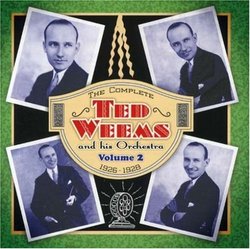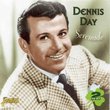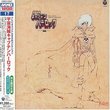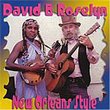| All Artists: Ted Weems & His Orchestra Title: The Complete, Volume 2 Members Wishing: 0 Total Copies: 0 Label: Renovation Original Release Date: 1/1/2007 Re-Release Date: 11/20/2007 Genres: Jazz, Pop Style: Number of Discs: 1 SwapaCD Credits: 1 UPC: 725543700827 |
Search - Ted Weems & His Orchestra :: The Complete, Volume 2
 | Ted Weems & His Orchestra The Complete, Volume 2 Genres: Jazz, Pop
Ted Weems (1901-1963) led one of the more long-lived dance orchestras in America. Just after World War I, Weeds, a bandleader, violinist and trombonist, formed a big band that toured the college and dance hall circuits and... more » |
Larger Image |
CD Details
Synopsis
Product Description
Ted Weems (1901-1963) led one of the more long-lived dance orchestras in America. Just after World War I, Weeds, a bandleader, violinist and trombonist, formed a big band that toured the college and dance hall circuits and became one of the most popular attractions on the Midwest music circuit. At an engagement in Atlantic City representatives from the Victor Talking Machine Company approached Weeds and this began his recording career (see Renovation 7005 for 1923-26 recordings). Weeds showed an uncanny ability to adapt his sound to fit the most popular trends. Weeds had a strong jazz flavor and concise solos in this period. When vocal refrain became a fashionable addition to big band music, Weeds was ready with the adept Parker Gibbs at the microphone. Throughout the twenties Weeds developed strong and devoted audiences both on air-waves and in the dance halls. This CD includes Weeds' most popular and swinging numbers. The orchestra moved to Chicago in 1929 and this remained their primary base of operations throughout a lengthy career.
Similar CDs
| Dennis Day Serenade Genres: Jazz, Pop, Broadway & Vocalists Label: Jasmine Music | |

 Track Listings (25) - Disc #1
Track Listings (25) - Disc #1


